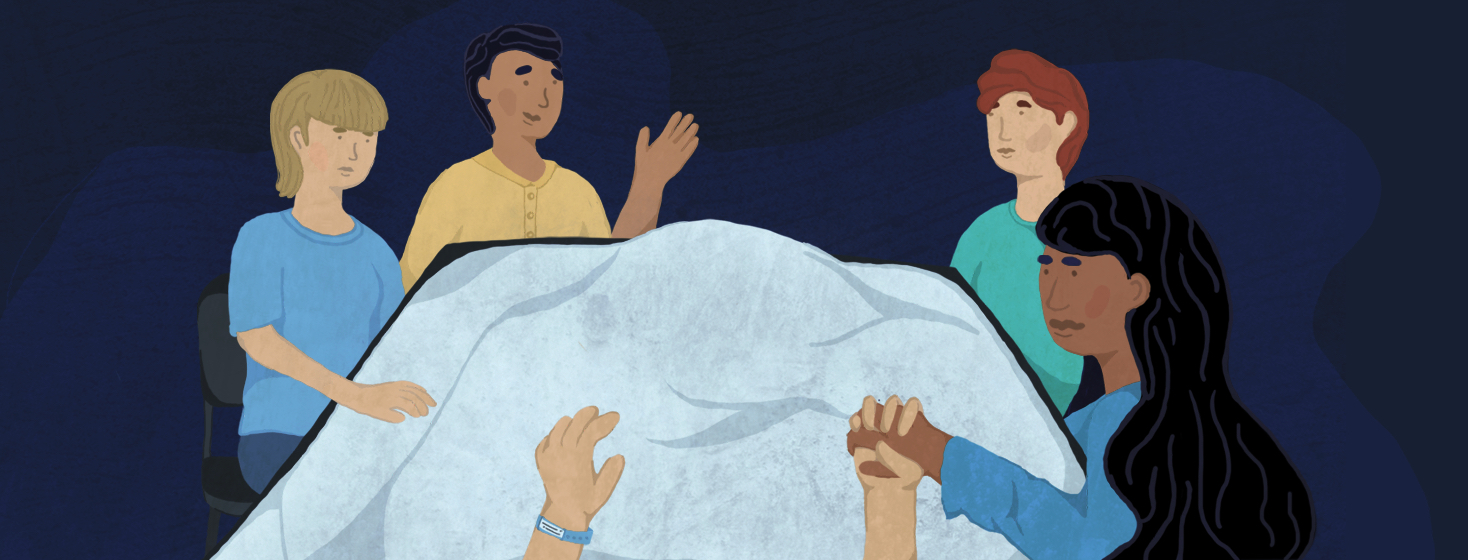"You Are Not Alone. You Will Not Feel Pain. We Will Be OK."
Editor’s note: The following article describes the author’s feelings about death, which may be upsetting for some readers.
I read an article recently about a mother who was caring for her dying child. Her child had leukemia and they were trucking right along with cutting edge treatment and figuring out all the details that go along with that when the hospital personnel told her that her child was actively dying, dying that day. Once she went through the inevitable questions and adjusted her expectations, she settled down to the important work of preparing her child to actually die. You can read the full article here.
Preparing for death and for what follows
I'm not a child and I won't be saying these kinds of things to myself when I get to that point, but the article and the preparation behind it made a big impact on me. We don't talk about death and dying enough in this country, in my opinion. That means we don't observe others dying and we don't learn how to walk through the transition with others or ourselves in a meaningful way.
Communicating our wishes
How do we support one another in our end of life concerns? How do we educate ourselves on end-of-life options? How do we communicate our wishes in such a way that the people around us and who will survive us will honor them?
What if we miss something?
I've been grappling with this for a while now. As a lawyer, I am particularly sensitive to having detailed instructions and I may have a few lists in draft form. I also struggle with being concerned that I'll miss something, that I'll forget to communicate something super important. It is, after all, the first time I've been in a situation that I know will result in my death and I'm sure it's the first time for many of you reading these words.
These three concepts, I think, can provide a blueprint of sorts for addressing end of life issues.
"You are not alone"
First of all, "You are not alone." Dying is, by definition, a solitary endeavor. No one else walks the same path as another. Since we humans are made to be in community and there aren't very many reliable accounts of dying, this concept can be daunting. Yet, starting with the idea that we will walk the path towards death with others is important in thinking about what we want. Who are the people around us that can handle the transition? Who are the people around us who will carry out our wishes, even if those wishes are hard? Who do we want to be with us on those important days as we decline?
"You will not feel pain"
Secondly, "You will not feel pain." Everyone has different ideas about how much pain is too much pain. At some point, the desire to keep pain under control can mean that awareness is sacrificed. Many types of pain medication have side effects that some people are not comfortable with. Thinking about how much pain is too much, how much pain could be tolerated and how much pain that would lead one to request to not be aware, are good areas of thought and instruction.
"We will be ok"
Third and finally, "We will be ok." On some level, each dying person struggles with how the people left behind will cope with their absence. I've read lots of stories about people who wait to pass until someone has visited or someone gives the dying person "permission" to let go. I think this is illustrative of how strong a bond can be with another human being and how the soul of a person will cling to life despite all odds.
Community is necessary from birth to death
I hope everyone who is dealing with the possibility of dying has a person in their life who will say these words, who will live these words, who will make the effort and the sacrifice to enter into the process of dying. We are made for community and that community is necessary from birth to death and everywhere in between.

Join the conversation